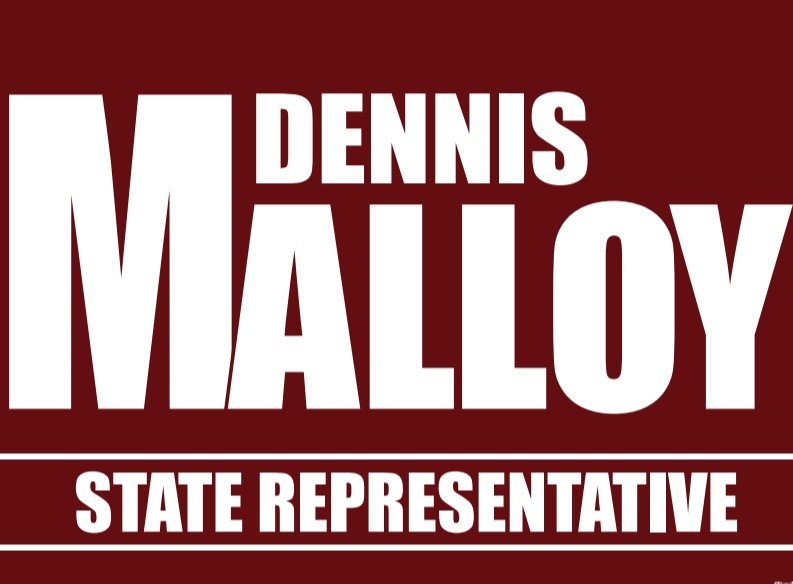Greenland/Newington State Representative Dennis Malloy hears testimony via Zoom technology during Ways and Means Committee hearing on Thursday January 28, 2021
Credit: Kevin Landrigan New Hampshire Union Leader
CONCORD — Plunging into what is expected to be a dominant issue in the 2021 legislative session, the House Ways and Means Committee on Thursday took up three bills that would change state tax rates, including those on businesses and unearned income.
The three bills would cut the two main business taxes, repeal the tax on interest and dividends and close a loophole that enables people making hotel or rental car reservations online to avoid paying the state’s 9% room and meals tax.
Business taxes
House Speaker Sherman Packard, R-Londonderry, said passing this next round of cuts to taxes on business profits and business activity is a top priority. His bill, HB 10, would cut the Business Profits Tax from 7.7% to 7.5% and the Business Enterprise Tax from 0.6% to 0.5%. The changes would take place in two steps and be complete by Jan. 1, 2023.
“We believe it is absolutely a positive move forward that will bring more businesses into the state and will help those struggling businesses recover more quickly from the pandemic,” Packard said.
The bill’s further aim is to undo the work of the Democratic-led Legislature over the past two years.
Last September, Gov. Chris Sununu agreed to a state budget compromise that eliminated an earlier round of business tax cuts because state revenue growth did not reach an agreed-upon threshold.
Sununu said he would support another round of business tax cuts and could propose a further cut in the room and meals tax to help the hospitality industry.
The Department of Revenue has estimated the business tax cuts would reduce revenue by roughly $40 million a year by 2024.
State Rep. Timothy Horrigan, D-Durham, was the only person to testify against the bill.
“It’s simple: Pass this bad bill and we would have to get that revenue from somewhere else,” Horrigan said.
House Ways and Means Chairman Norm Major, R-Plaistow, said the revenue department’s “static analysis” of revenue loss doesn’t take into account what business owners will do when their taxes are reduced.
From 2010 to 2015 — before any state business tax cuts — revenue went up $71.5 million or 14.6%.
Over the next four years, with business tax cuts going into effect, revenue from the two taxes went up $244 million or 44%, Major said.
“The obvious takeaway is that these tax cuts do in fact stimulate some activity,” said Drew Cline, president of the Josiah Bartlett Center for Public Policy, a Concord-based free-market think tank.
Rep. Susan Almy, D-Lebanon, said many “vectors” other than tax cuts affect revenue growth, including the arc of the gross domestic product and the stock market.
NH’s ‘income tax’
Rep. Norman Silber, R-Gilford, said his legislation, HB 568, would eliminate the 5% tax on interest and dividends over four years.
The current tax exempts unearned income up to $2,400 for one person and $4,800 for a couple. After that, unearned income is taxed at 5%.
Silber’s bill would increase those exemptions for the first three years and then eliminate the levy in the fourth.
“We have been holding ourselves out for a very long time as having no personal income tax, but the truth is we do have one, and it’s the interest and dividends tax,” Silber said.
Six states have no income tax of any kind, and the income tax in 11 states is lower than New Hampshire’s 5% on unearned income, Silber said.
Greg Moore, state director of the fiscally conservative Americans for Prosperity, said former state Rep. Will Smith is one of many wealthy investors he knows who changed their residency to low- or no-tax states such as Florida and Texas.
“Losing these folks is not good for this economy, period,” Moore said.
State revenue officials said repeal of the interest and dividends tax would mean a loss of $113 million a year.
Online reservations
Packard said he authored the legislation (HB 15) dealing with taxing “room-sharing” or “car-sharing” purchases made online for the sake of fairness.
Car rentals were added to the room and meals tax 15 years ago. Packard said he has been working for three years to make sure the tax applies to online reservations, too.
“Some have said this is a new tax or a tax increase. I want to make sure everyone understands that it is not,” Packard said. “This is something that is fair to everyone.”
Steve Shur of the Travel Technology Association said this tax treatment would be so broad that it would tax the fees paid to online travel agents, including those working for companies such as Expedia and Priceline.
“Now is not the time to tax any aspect of travel and tourism,” Shur said.
Carl Szabo, vice president and general counsel of NetChoice, disagreed with Packard.
“What we are talking about here is providing a new tax. Only three states are doing this,” Szabo said.
The House tax panel will create working groups to further review these bills in coming weeks, Major said.
klandrigan@unionleader.com


